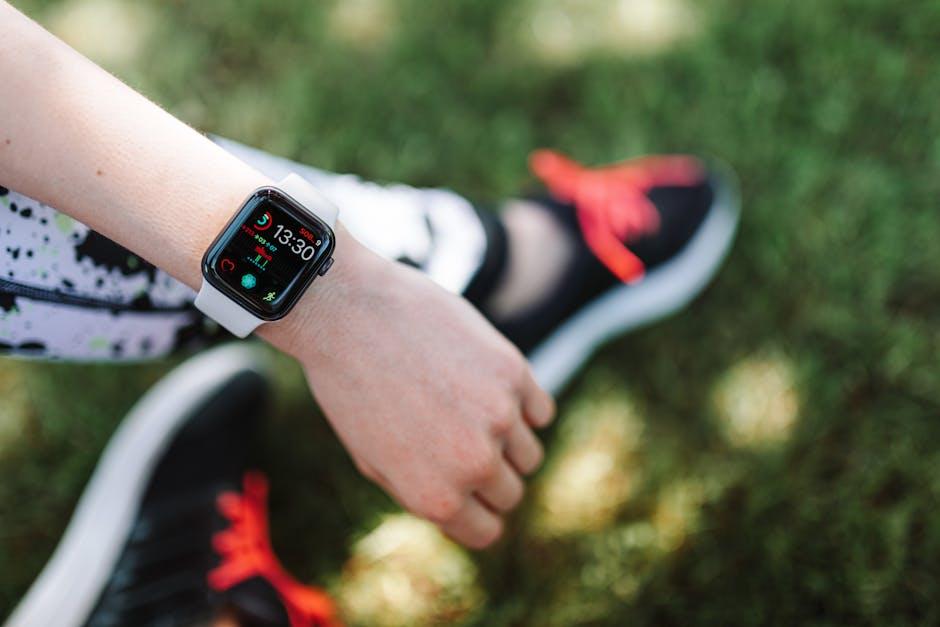in a world where fitness and wellness take center stage, tracking our health has become more than just a trend—it’s a necessity. As we lace up our sneakers and gear up for the next workout, understanding our heart’s rhythm has never been more crucial. Heart rate monitoring during exercise not only helps optimize performance but also plays a pivotal role in ensuring safety and guiding us toward our fitness goals. With a myriad of devices flooding the market, from sleek smartwatches to refined heart rate monitors, choosing the right wearable can feel overwhelming. In this article, we delve into the best wearables for heart rate monitoring during exercise, exploring their features, benefits, and how they can enhance your fitness journey while keeping your heart in check. Whether you’re a seasoned athlete or a casual gym-goer, the perfect companion for your workouts awaits.
The Science Behind Heart Rate Monitoring and Its Impact on Performance
Heart rate monitoring has become a cornerstone in optimizing athletic performance and enhancing workout effectiveness. by continuously tracking heart rate variability, athletes can gain insights into their fitness levels and overall cardiovascular health. This data can definitely help tailor workouts to stay in the ideal heart rate zone, maximizing fat burn, improving endurance, and preventing overtraining. Additionally, real-time heart rate feedback allows for immediate adjustments in exercise intensity, ensuring that individuals remain within their personal goals and limits. Some key metrics influenced by heart rate monitoring include:
- Resting Heart Rate: Indicator of cardiovascular fitness.
- Maximum Heart Rate: Used to determine training zones.
- Heart Rate Recovery: A measure of cardiovascular efficiency.
Moreover, the science behind heart rate monitoring extends to its psychological benefits as well. Tracking heart rates can help enhance motivation through visual data representation, encouraging users to push beyond perceived limits. moreover,studies suggest that understanding one’s heart rate can reduce workout-related anxiety,leading to more focused and productive exercise sessions. as technology evolves, integrating features like stress level analysis and sleep monitoring with heart rate data further enriches an athlete’s ability to fine-tune their performance and recovery strategies.

Top Features to Look for in heart Rate Monitoring Wearables
When selecting a heart rate monitoring wearable, it’s essential to prioritize features that enhance your training experience and ensure accuracy. Real-time monitoring is a must—it provides immediate feedback to help you manage your effort levels during workouts. Additionally, look for multi-sport tracking capabilities, allowing the device to adapt to various activities such as running, cycling, or swimming. Consider wearables that offer customizable heart rate zones, enabling you to set training goals tailored to your fitness level. The wearable should also feature water resistance to ensure durability during sweaty sessions or aquatic activities.
smart connectivity options can significantly enhance usability; therefore,select devices that sync seamlessly with your smartphone or computer for comprehensive data analysis. Look for features like long battery life to ensure your device lasts through extended workouts or weekend adventures. Integration with popular fitness apps is another perk that can offer deeper insights into your performance.Lastly, comfort and design are vital—whether you prefer a sleek watch or a lightweight band, ensure that the wearable is agreeable enough for all-day wear, not just workouts.

Comparing Leading Brands: Which Wearable Stands Out for Athletes
In the competitive arena of sports technology,athletes often find themselves evaluating which wearable can offer them the edge they need. Each leading brand presents unique features tailored for performance and health monitoring. The Garmin Forerunner 245, as an example, excels in providing advanced metrics such as training load, recovery time, and VO2 max estimates, making it a favorite among serious runners. Conversely, the polar Vantage V2 boasts an impressive array of heart rate tracking options, including the ability to utilize wrist-based measurements without sacrificing accuracy. With these devices, athletes can keep a close eye on their cardiovascular performance during intense training sessions.
For those prioritizing user experience and connectivity, the Apple Watch Series 8 has carved out a niche with its seamless integration into everyday life and access to a plethora of fitness apps. Additionally, the Fitbit Charge 5 stands out due to its affordable pricing, yet it still offers essential heart rate monitoring features along with guided breathing sessions. To compare these offerings, we can summarize their core strengths in the following table:
| Brand | Strengths | Ideal Users |
|---|---|---|
| Garmin Forerunner 245 | Advanced metrics | Serious runners |
| Polar vantage V2 | Accurate HR tracking | Endurance athletes |
| Apple Watch Series 8 | Integration with apps | General fitness enthusiasts |
| Fitbit Charge 5 | affordable heart tracking | Casual users |

user Experiences: Real-World Insights on Heart Rate Monitors During Workouts
Heart rate monitors have become an essential tool for many fitness enthusiasts, providing real-time insights into their cardiovascular performance during workouts. Users consistently appreciate the accuracy and reliability of these devices, noting how valuable it is to track their heart rates across varying intensities of exercise. Many athletes mention that they can optimize their training sessions by adjusting their efforts based on the feedback from their heart rate monitors. For instance, during interval training, knowing when to push harder or when to recover can make a meaningful impact on overall performance. The feedback not only helps in improving fitness levels but also enhances the enjoyment of working out, leading to better adherence to exercise routines.
Moreover, the convenience of wearable devices has reshaped how individuals perceive their fitness journeys. Users commonly report how comfortable and non-intrusive modern heart rate monitors are,often forgetting they are wearing them altogether. The integration with smartphones and fitness apps has turned data analysis into a seamless experience, allowing users to visualize their performance over time. Some of the standout features that garner positive feedback include:
- Real-time heart rate alerts
- Calorie expenditure tracking
- historical data comparisons
These functionalities not only motivate users to stay active but also empower them to make informed decisions about their health.As technology advances, heart rate monitors continue to evolve, further enhancing the user experience and solidifying their place in the fitness landscape.
Key Takeaways
in the ever-evolving landscape of fitness technology, maintaining a pulse on your heart health has never been more accessible—or exciting. as we’ve explored the best wearables for heart rate monitoring during exercise, it’s clear that these devices are more than just sleek gadgets; they are your personal trainers, health advisors, and motivators rolled into one. With advanced sensors, intuitive designs, and a variety of features tailored to meet individual needs, the right wearable can enhance your workout experience and provide invaluable insights into your cardiovascular health.
As you embark on your fitness journey, remember that the key to effective workouts lies not only in pushing your limits, but also in listening to your body. Whether you’re cycling, running, or practicing yoga, investing in a reliable heart rate monitor can help you strike the perfect balance between effort and recovery, ensuring you engage in safe and efficient training.So, as you sweat it out and chase your fitness goals, choose a wearable that resonates with your style and needs. With the right companion on your wrist, you’ll be empowered to unlock your potential, adapt your routines, and ultimately, achieve a healthier, more vibrant you. Happy exercising!





